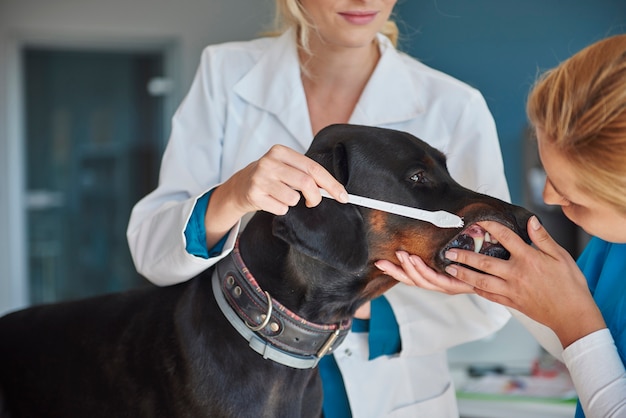Recognizing Signs of Pain in Dogs and Cats

Recognizing Signs of Pain in Dogs and Cats: A Guide for Pike Road Pet Owners
As a loving pet owner, you know your dog or cat better than anyone. Yet, pets are masters at hiding pain, making it difficult to recognize when something is wrong. Whether you live in Pike Road or one of the surrounding communities, understanding the subtle signs of pain in pets is crucial for ensuring their long-term comfort and happiness. At Partners for Pets, our veterinary team is committed to helping you spot these early warning signs and providing comprehensive veterinary services in Pike Road when your pet needs them most.
In this blog, we will explore the common and not-so-obvious dog and cat pain symptoms, what causes pain in pets, and the steps you can take to help your furry companion. We will also discuss when it is time to schedule an appointment at our Pike Road location for a thorough evaluation. By learning what to watch for, you can make sure your pet receives prompt care, leading to a quicker return to comfort and quality of life.
If you have concerns about your pet’s health, our team of veterinarians in Pike Road is here to help. Early intervention is key, and our wellness examinations are designed to catch issues before they become more serious. Let’s dive into the signs of pain in pets and what every pet owner in Pike Road should know.
Spotting the Signs: How to Identify Pain in Dogs and Cats
Common and Subtle Dog and Cat Pain Symptoms
Many pet owners expect that a pet in pain will cry out or limp, but the reality is more complicated. Key symptoms of pain in pets include limping or favoring one leg, reluctance to jump or climb stairs, and decreased appetite or changes in eating habits. Changes in grooming routines, such as over-grooming a particular area or neglecting self-care altogether, can also signal discomfort. Other dog and cat pain symptoms are hiding more than usual, increased vocalization, and sudden aggression or withdrawal.
Cats, in particular, may show less obvious signs, such as urinating outside the litter box or avoiding interaction. Dogs might pant excessively, become restless, or resist being touched in certain areas. It is not uncommon for a pet to simply seem “off” or less playful than normal. If your pet is displaying any of these symptoms, it may be time to consider a comprehensive pet exam in Pike Road to determine the underlying cause.
Behavioral Changes That Raise Concern
Behavioral changes can be one of the first indications that your pet is experiencing pain. Signs to watch for are increased irritability, reluctance to be handled, or unusual vocalizations like yelping or growling when touched. Even small changes, such as a dog hesitating before jumping into the car or a cat refusing to leap onto a favorite perch, can be important clues. By paying close attention to these subtle behavioral shifts, you can help ensure timely intervention and relief for your pet.
Understanding the Causes: Why Pets Experience Pain
Common Sources of Pain in Pets
Pain in dogs and cats can arise from a range of conditions. Some of the most common causes include dental disease, arthritis, recent injuries, soft tissue strains, or surgical procedures. Additionally, underlying illnesses such as infections, cancer, or internal organ issues can also result in discomfort. In Pike Road and surrounding areas, pets are sometimes at risk for regional health concerns, such as heartworm disease, which can cause significant pain if left untreated. For more on preventing pain from disease, see the American Heartworm Society for up-to-date information and resources.
Dental Disease: A Hidden Source of Discomfort
Oral health is often overlooked, but dental disease is a leading cause of chronic pain in pets. Signs of dental pain include difficulty eating, drooling, pawing at the mouth, or foul breath. If you notice any of these symptoms, our pet dental cleanings in Pike Road are an important preventive measure to address and prevent oral discomfort. For more severe issues, oral surgery or tooth extractions may be necessary to restore your pet’s comfort.
Orthopedic Pain and Mobility Issues
Older pets or those with a history of injury may develop joint or bone pain. Conditions like hip dysplasia, torn ligaments, or arthritis can lead to ongoing discomfort and reduced mobility. If your pet seems stiff, struggles to rise from lying down, or resists exercise, orthopedic pain may be the culprit. Our veterinary team can offer solutions ranging from pain management to surgical intervention, tailored to your pet’s specific needs.
Professional Pain Management: How Partners for Pets Can Help
Comprehensive Assessment and Diagnosis
When you bring your pet to Partners for Pets for pain evaluation, our team begins with a thorough physical examination. This may include advanced diagnostics, such as bloodwork or radiographs, to identify the source of discomfort. Our in-clinic diagnostics in Pike Road help us quickly and accurately determine what is causing your pet’s pain, allowing for effective treatment planning.
Treatment Options for Pain Relief
Treatment approaches for managing pain in pets involve a combination of medical therapy, lifestyle modifications, and sometimes surgical intervention. Medications for pain control, anti-inflammatory drugs, and supportive therapies such as joint supplements or weight management can all play a role. For dental pain, pet oral surgery or pet tooth extractions in Pike Road may be recommended. Orthopedic issues may require specialized procedures available through our orthopedic surgery services.
Our veterinarians will work closely with you to develop an individualized pain management plan, which may include follow-up visits to monitor progress and adjust treatment as needed. We understand that every pet is unique, so our goal is always to provide the most effective and compassionate care possible.
Preventive Services to Reduce Pain Risk
Prevention is a key aspect of our philosophy at Partners for Pets. Regular wellness exams, vaccination services, and dental care are essential for reducing your pet’s risk of developing painful conditions. By staying up to date with pet vaccinations in Pike Road, you can help protect your pet from many diseases that can cause significant discomfort or complications. Our preventive care programs are designed to support your pet’s health at every stage of life.
Home Care and Prevention: Steps You Can Take
Creating a Comfortable Environment
At home, you can help manage your pet’s pain by providing a soft, supportive bed, minimizing stairs or obstacles, and maintaining a consistent routine. Keeping your pet at a healthy weight is important, as extra pounds can increase strain on joints and worsen pain. Gentle exercise, such as short walks or playtime, can also help maintain mobility without overexertion.
Monitoring for Changes
Regularly observe your pet for changes in behavior, appetite, or mobility. If you notice new symptoms, worsening discomfort, or sudden changes, contact our veterinary team promptly for guidance. Early detection makes a significant difference in outcome and quality of life.
Safe Pain Management at Home
It is crucial never to give your pet human pain medications, as many are toxic to dogs and cats. Instead, follow your veterinarian’s recommendations for safe pain relief options. If you suspect your pet has been exposed to a toxic substance, reference the ASPCA Animal Poison Control resource for guidance and seek veterinary care immediately.
When to Seek Veterinary Care: Knowing When to Call for Help
Red Flags That Require Immediate Attention
Certain signs mean your pet needs prompt veterinary evaluation. Warning signs to watch for are persistent vomiting or diarrhea, trouble breathing, severe lethargy, inability to stand or walk, or visible injuries such as bleeding or broken bones. If your pet experiences any of these symptoms, please schedule an appointment with our veterinary professionals at the earliest opportunity.
Less urgent signs, such as changes in appetite, mild lameness, or decreased activity, still warrant a professional assessment, especially if they persist for more than a day or two. Our commitment to providing quality veterinary services in Pike Road means we are always here to help, whether your pet’s pain is sudden or has developed over time.
The Importance of Early Intervention
Prompt attention from a veterinarian can prevent minor issues from becoming serious, reduce your pet’s pain, and support a faster recovery. If you are searching for a "vet near me" or want to ensure your pet receives the highest level of care, our team at Partners for Pets is ready to support you every step of the way.
Compassionate Veterinary Care in Pike Road: Schedule Your Appointment Today
Recognizing the signs of pain in pets is one of the most important things you can do as a pet owner. By understanding common dog and cat pain symptoms, you can act quickly to secure the help your pet needs. Whether it is a routine wellness exam, dental cleaning, or advanced pain management, our team of veterinarians in Pike Road is dedicated to providing quality veterinary services near you.
If you notice any signs of discomfort in your dog or cat, do not wait for symptoms to worsen. Contact Partners for Pets today to schedule an appointment or learn more about our wellness examination services in Pike Road. Our veterinary professionals will work with you to create a care plan that keeps your pet comfortable and healthy, no matter what challenges arise.
Call us at (334) 218-4500 or visit our Pike Road location to discover why local pet owners trust us as the best "vet near me" for pain management and preventive care. At Partners for Pets, your pet’s comfort and health are always our top priorities.



















